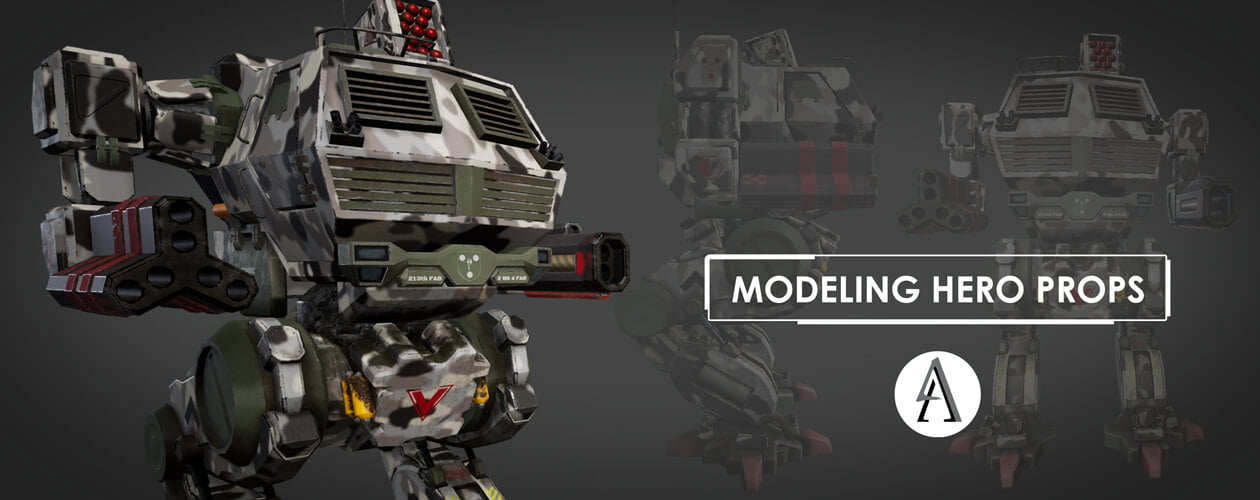
The Hero Props course is designed to teach students how to develop 3D high polygon hero props for use in 3D animations and games. Students will use Autodesk’s Maya, Substance Painter, and Photoshop to create their hero props. This course will also dive into the theory of creating practical and functional hero props. The standards of this course are indicative or above the standards found in a 3D graphics industry.
Course Instructor
Weekly Livestreams
Each week, a one-hour livestream with your instructor will be scheduled so you can ask any questions you may have and get feedback in real-time.
Lifetime Access
All pre-recorded lectures and recorded livestreams will be available to you forever so you can review lessons even after the course ends.
Certificate
Completing this course at a Professional or Advanced Level will act as credit toward a certificate in the corresponding Program Area.
Course Outline
Module 1 | Prop 1 Modeling
In Module 1, students are introduced to the form follows function concept and how to apply that concept to 3D prop models. Students will begin to model their first hero prop in this module.
Module 2 | Prop 1 Texture
In this module, students learn to use the PBR method to texture their first Hero Prop. Students also learn how to properly export their textures.
Module 3 | Prop 2 Modeling
Module 3 begins the second Hero Prop, a handheld radio. It expands on modeling techniques and prepares students for future assignments.
Module 4 | Prop 2 Texture
This module demonstrates additional techniques for texturing a model, such as custom color selection.
Module 5 | Prop 3 Modeling
Module 5 starts the 3rd Hero Prop, a sci-fi crate. It discusses additional modeling techniques and how to prepare a model for animation.
Module 6 | Prop 3 Texture
Students will learn to export and texture a model with animation in mind.
Module 7 | Prop 4 Modeling
In this module, students will model their final Hero Prop. Everything the student has learned thus far is discussed further. Form follows function is reiterated.
Module 8 | Prop 4 Texture
The student must texture the final Hero Prop using the techniques learned in this course. Students must create and apply alpha images to their model to add details.